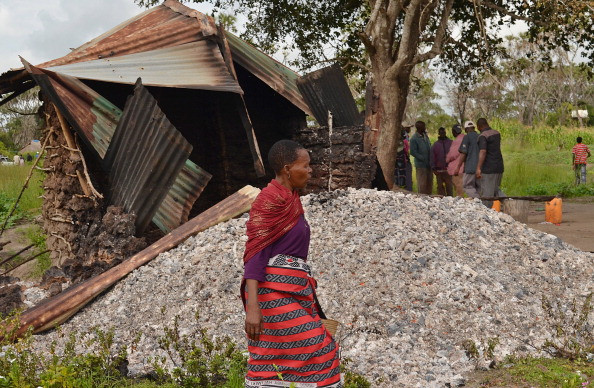Kenya police brutality on the rise following al-Shabaab attacks

Kenyan police forces have allegedly committed human rights abuses against the population in the aftermath of eight deadly terror attacks that occurred in 2014, according to right groups.
A report by Human Rights Watch and the independent Kenya Human Rights Commission claimed that police security operations following deadly attacks in Lamu and Tana River area are marred by wrongdoing.
The two right groups interviewed several people who alleged that Kenyan police arbitrarily arrested and detained people without charges and that investigations involved discrimination.
The terror attacks, half of which were carried out by Somalia-based terror group al-Shabaab, started on 15 June 2014 and lasted for about five weeks. The militants killed at least 87 people across Kenyan villages, mainly targeting non-Muslims.
Who are the al-Shabaab militants?
Al-Shabaab, which means "The Youth", is a Somali terror group affiliated with al-Qaeda.
An off-shoot of the Islamic Courts Union – a rival administration to the Transitional Federal Government in Somalia – al-Shabaab aims to overthrow the Somali government and impose its own version of Islam in the country.
It controlled Mogadishu and the southern region of Somalia from 2006 until 2011, when it was defeated by African Union peacekeepers.
According to witnesses, the terrorists said they were carrying out the attacks in retaliation to the persecution of Muslims and the presence of Kenyan troops in Somalia.
People interviewed in the report also alleged that the police were slow to intervene in violence and when operations started, villagers were harassed and people who were detained were beaten by the authorities.
"They took turns to beat us, as they shouted 'Terrorists! Terrorists!'" said a 42-year-old witness who was detained in Witu. "I think they only stopped beating us because they were tired."
Another witness said: "The police came at 3am but they never did anything because the fighters had long gone. They just came to collect bodies, assisted by Kenya Red Cross. In some instances, they even refused to go where the injured were despite assurances by us that the attackers had already left."
Kenyan police was not immediately available for comments.
This is not the first time that Kenyan police has been accused of brutality. Earlier in June, pictures emerged showing policemen flogging some suspected terrorists in Garissa, northern Kenya, where al-Shabaab attacked a university college killing 148 people.
In an exclusive report by IBTimes UK, activists in northern Kenya alleged that police violence against civilians has resulted in an increasing number of young people joining al-Shabaab.
Garissa county commissioner James Kianda was quoted as saying: "The officers who posted the photos and others involved will face disciplinary action, of course subject to validation. This is not how we want to fight terrorism."
© Copyright IBTimes 2025. All rights reserved.




















